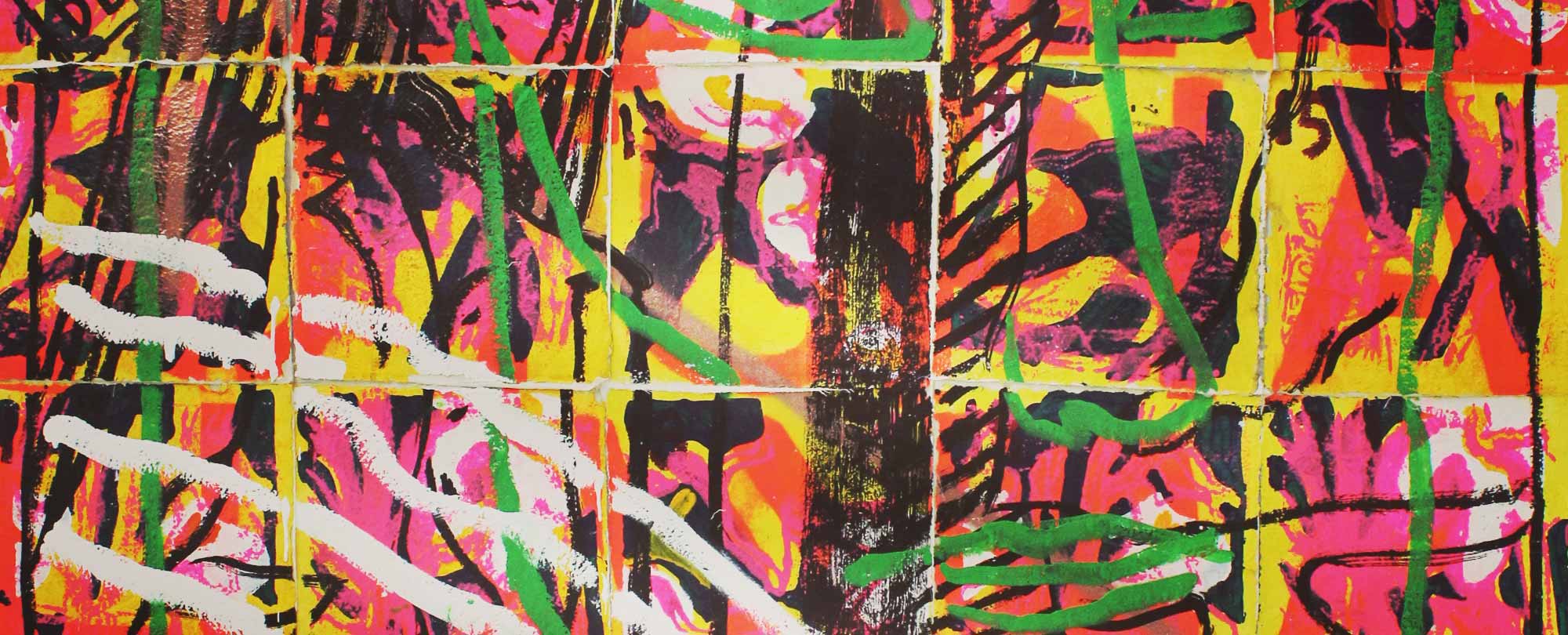Francisco Vidal is a Portuguese Angolan artist represented by Tiwani Contemporary.
His work is currently on display at African Perspectives at The Armory Show in New York.
Often painting on handmade paper that take over the spaces they inhabit, Vidal touches on Angola’s past and colonialism.
He is a founder of e-studio Luanda and was selected to represent Angola at the 56th Venice Biennale. He often does ink-portraits during his exhibits, of the visitors who come to the space.
Your work seems to take over the rooms that it inhabits, often splayed across every surface. Is there a particular reason why?
As a teenager I did a lot of graffiti and made street posters, so I suppose it is the scale which I am more familiar with composing. It is something organic that just keeps growing…
What has e-Studio Luanda been up to recently?
E-studio as a collective doesn’t exist any more. The four of us are working on the same propositions that we had in the beginning, but individually. I’m trying to get closer to educational art thinking in Luanda, which has been my intention for a long time.
What type of work are you exhibiting at The Armory Show 2016? Is the ‘Portrait Series’ a recent body of work?
Tiwani Contemporary will be showing the Portrait Series and the series of cotton flower paintings. These were produced for my exhibition ‘African Industrial Revolution’ at the gallery in July 2015, and were produced by my Utopia Luanda Machine.
I work a lot with handmade paper and am now working on different shapes of paper and on the compositions that can be made with forms other than the square.
What responsibility do you think you have as a ‘political’ artist?
For me, all art is political. All forms of expression promote free thinking and the freedom of speech. I think collectively we need to live in a poetic, and therefore political way.
In Angola there is a big discussion about the word freedom. This discussion keeps returning to the days of slavery.
As a political artist I have to promote and defend the possibility of poetry.
Today it is really interesting to think and question, because the situation we live in today is a product of all human relations we had in the past. And nothing is as bad for poetry as war, slavery or colonialism…
My position as part of the e-Studio collective was to strive for a kind of utopia, so I became a teacher and for the first time did work with younger people. As a political artist I have to promote and defend the possibility of poetry.
What are you up to next in 2016?
I want to work more with recycled paper. I also want to work with children as I have never done it before and I am sure that they will teach me more than I expect. I will start at the end of March and I’m really excited to see what will come out of it.
This project will start in the suburbs of Lisbon, close to the place where I grew up. The intention is to start there and then move the experience to different locations and different cultures.
Check out more here
